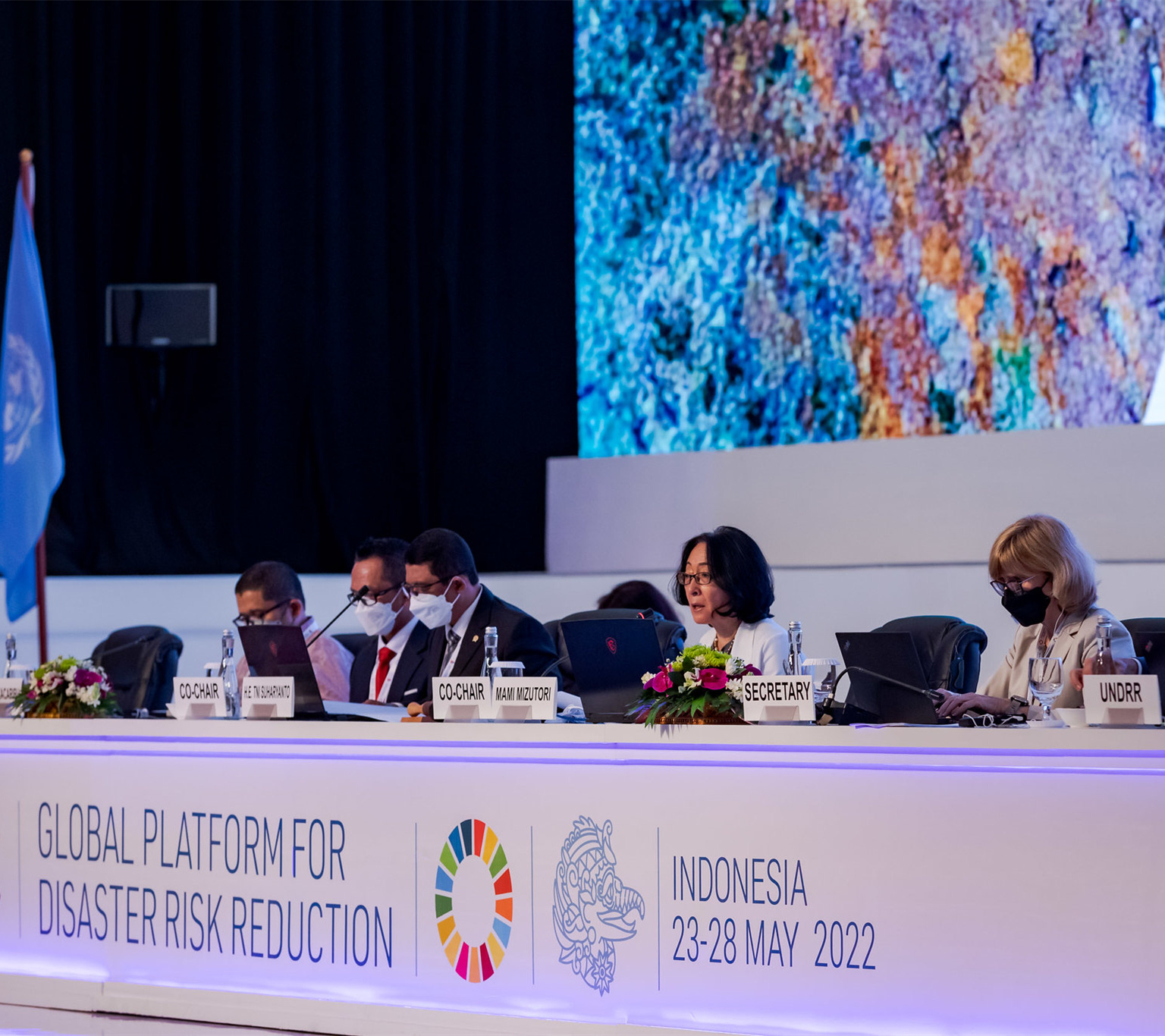UN disaster summit concludes with Bali Agenda for Resilience to prevent world from facing 1.5 disasters a day by 2030

Global Platform for Disaster Risk Reduction was a ‘wake-up call’ to improve preventative measures and ‘stop the spiral of increasing disaster impact and risk’.
May 27, 2022, Bali, INDONESIA — More countries must “Think Resilience”, and urgently adopt and improve early warning systems to reduce risks from an increasing number of disasters across the world, a UN forum has concluded.
Some 184 countries gathered in Bali to review efforts to protect communities from a rising number of climate hazards and other catastrophes around the world.
The 2022 Global Platform for Disaster Risk Reduction heard only 95 countries reported having multi-hazard early warning systems that give governments, agencies and the general public notice of an impending disaster, with particularly low coverage in Africa, Least Developed Countries and Small Island Developing Countries.
Early warning systems were cited as a critical defence against disasters such as floods, droughts and volcanic eruptions in the recent Global Assessment Report, which predicted 560 — or 1.5 disasters a day — by 2030 based on the current trajectory.
It comes after António Guterres, UN Secretary-General, called for the warning systems to cover every person on the planet within five years.
“Early warning systems should be inclusive of communities most at risk with adequate institutional, financial and human capacity to act on early warnings.,” said the Co-Chairs’ Summary, known as the Bali Agenda for Resilience.
“A core recommendation is to apply a “Think Resilience” approach to all investments and decision making, integrating disaster risk reduction with the whole of government and whole of society.”
The Bali Agenda for Resilience, comes ahead of the 2022 International Day for Disaster Risk Reduction on October 13 dedicated to early warning systems, and was presented at the end of the three-day Global Platform hosted by the Government of Indonesia.
The meeting, which was the first international UN disaster forum since the start of the Covid-19 pandemic, was also taking place as the Midterm Review of the UN’s Sendai Framework for Disaster Risk Reduction got underway.
In light of the pandemic, the Bali Agenda highlighted the need to reassess the way risk is governed and policy is designed as well as the types of institutional arrangements that need to be put in place at the global, regional, and national levels.
“Current approaches to recovery and reconstruction are not sufficiently effective in protecting development gains nor in building back better, greener and more equitably,” the summary said.
“Transformative lessons learned from the COVID-19 pandemic must be applied before the window of opportunity closes.”
Delegates also shared progress since the last Global Platform in 2019, with a 33 per cent increase in the number of countries now developing disaster risk reduction strategies and reporting through the Sendai Framework Monitor, which measures progress towards global targets.
“While there has been some progress, such as in the development of new financing mechanisms, and better linkages with climate action, the data still points to insufficient investment and progress in disaster risk reduction in most countries, especially in investing in prevention,” said the Bali Agenda for Resilience
“Less than half of the countries reporting against Sendai Framework targets indicate having fit-for purpose, accessible and actionable disaster risk information.”
The Bali Agenda for Resilience will be carried through to COP27, the G20 and the Midterm Review of the Sendai Framework.
Source:United Nations Office for Disaster Risk Reduction






